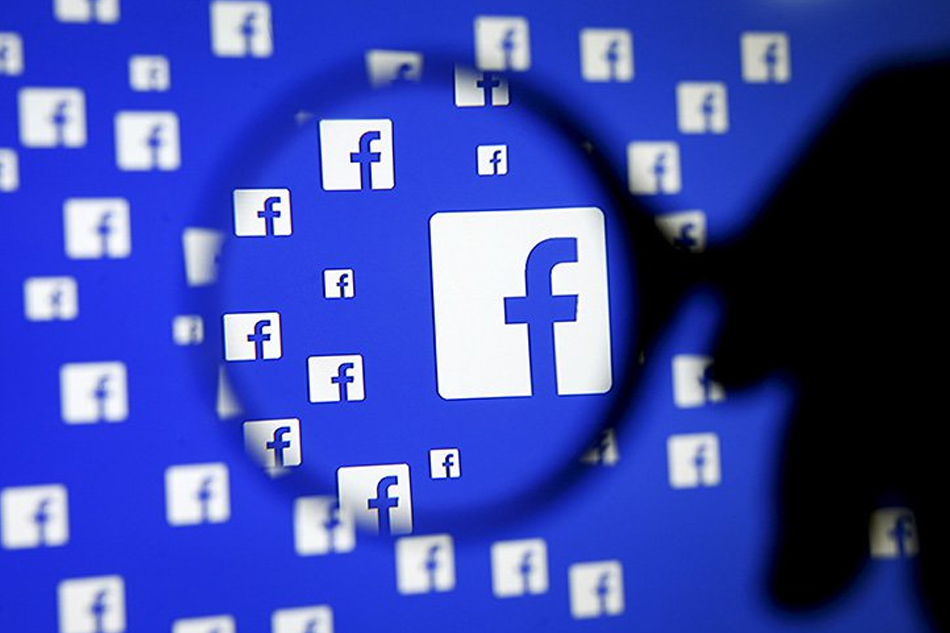Facebook frowns on 'fact-checking' opinions | ABS-CBN
ADVERTISEMENT

Welcome, Kapamilya! We use cookies to improve your browsing experience. Continuing to use this site means you agree to our use of cookies. Tell me more!
Facebook frowns on 'fact-checking' opinions
Trishia Billones,
ABS-CBN News
Published Apr 24, 2018 06:22 PM PHT
MANILA - While Facebook launched a third-party fact-checking program in the Philippines recently, there would be no feature to police the posts on the social media platform for now, an official said Tuesday.
MANILA - While Facebook launched a third-party fact-checking program in the Philippines recently, there would be no feature to police the posts on the social media platform for now, an official said Tuesday.
Facebook doesn't want to be an arbiter of truth - Clair Deevy, Director of Community Affairs for APAC, on policing native posts on FB. pic.twitter.com/xUJL8iFc5l
— Trishia Billones (@trishiabillones) April 24, 2018
Facebook doesn't want to be an arbiter of truth - Clair Deevy, Director of Community Affairs for APAC, on policing native posts on FB. pic.twitter.com/xUJL8iFc5l
— Trishia Billones (@trishiabillones) April 24, 2018
The fact-checking project, which tapped news agencies Rappler and Vera Files, will focus on the links shared on the platform, said Clair Deevy, Facebook's Director of Community Affairs for the Asia Pacific.
The fact-checking project, which tapped news agencies Rappler and Vera Files, will focus on the links shared on the platform, said Clair Deevy, Facebook's Director of Community Affairs for the Asia Pacific.
“One of the challenges around false news is understanding that there’s true and there’s false; but there’s also opinion, there’s perspective, there’s all these things and we can’t be arbiters of the truth," she told reporters.
“One of the challenges around false news is understanding that there’s true and there’s false; but there’s also opinion, there’s perspective, there’s all these things and we can’t be arbiters of the truth," she told reporters.
"Facebook doesn’t want to be an arbiter of truth...There are certain things very clear that we don’t allow: hate speech, terrorism, calls of violence. When it comes to opinion, to perspectives, these things are nuanced and it’s much harder to discern those things," she said.
"Facebook doesn’t want to be an arbiter of truth...There are certain things very clear that we don’t allow: hate speech, terrorism, calls of violence. When it comes to opinion, to perspectives, these things are nuanced and it’s much harder to discern those things," she said.
ADVERTISEMENT
Deevy said Rappler and Vera Files were tapped for the project because they were the only Philippine-based organizations that are signatories to international journalism institution Poynter's International Fact Checking Code of Principles.
Deevy said Rappler and Vera Files were tapped for the project because they were the only Philippine-based organizations that are signatories to international journalism institution Poynter's International Fact Checking Code of Principles.
Facebook, however, hopes to tap a "variety" of fact checkers for the initiative, she said.
Facebook, however, hopes to tap a "variety" of fact checkers for the initiative, she said.
“We certainly hope that more people are interested because we think this is a big issue and the more people we work with, the better we get in terms of ensuring that there is high quality content on Facebook," she said.
“We certainly hope that more people are interested because we think this is a big issue and the more people we work with, the better we get in terms of ensuring that there is high quality content on Facebook," she said.
Under the fact-checking project, news stories are reviewed by the third party tapped by Facebook after they are flagged by the users. The fact-checkers would then rate the accuracy of the story as false, true, or a mixture of accurate and inaccurate information.
Under the fact-checking project, news stories are reviewed by the third party tapped by Facebook after they are flagged by the users. The fact-checkers would then rate the accuracy of the story as false, true, or a mixture of accurate and inaccurate information.
The fact-checkers do not remove nor block content, said Deevy.
The fact-checkers do not remove nor block content, said Deevy.
ADVERTISEMENT
Stories rated false would be placed lower on the users' news feed. Articles providing correct information would also appear immediately below the original story.
Stories rated false would be placed lower on the users' news feed. Articles providing correct information would also appear immediately below the original story.
Users and page administrators would be also notified if they try to share the stories flagged as inaccurate.
Users and page administrators would be also notified if they try to share the stories flagged as inaccurate.
Last week, days after the social media giant announced its partnership with the Filipino news agencies, users noticed that Facebook has blocked some websites that were believed to be sharing false information.
Last week, days after the social media giant announced its partnership with the Filipino news agencies, users noticed that Facebook has blocked some websites that were believed to be sharing false information.
Facebook said it was because these websites were considered as spam according to its community guidelines.
Facebook said it was because these websites were considered as spam according to its community guidelines.
ADVERTISEMENT
ADVERTISEMENT



